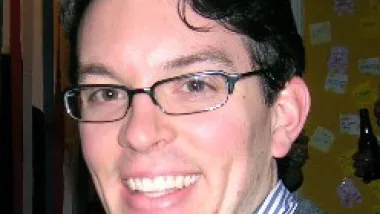Urban planning is an inherently knowledge-intensive activity. Even the most prosaic zoning change or development proposal can generate reams of memos, transcripts, minutes and notes. Planners routinely manage statistical and geographic data for research and analysis. In fact, this material proves so voluminous there is even a book on how planners can collect, manage, and share information effectively. A comment I heard recently reminded me how often these systems can go awry. After calling a government agency to track down information about a program, my wife was told "the person who knows about it" wasn't in so she would have to call back. Is this common situation inevitable? The field of knowledge management argues it can be avoided through deliberate organizational strategies. Without them, individual employees hoard critical information and managers fear the impact of retirements or departures. For the disorganized organization, hiring new employees can also require a lengthy orientation process. When it comes to government organizations, these problems are not merely about organizational inefficiency. Disorganization can result in costly mistakes, legal trouble, and effect the ability for the public to access information in a timely way.
Urban planning is an inherently knowledge-intensive activity. Even the most prosaic zoning change or development proposal can generate reams of memos, transcripts, minutes and notes. Planners routinely manage statistical and geographic data for research and analysis. In fact, this material proves so voluminous there is even a book on how planners can collect, manage, and share information effectively.
A comment I heard recently reminded me how often these systems can go awry. After calling a government agency to track down information about a program, my wife was told "the person who knows about it" wasn't in so she would have to call back. Is this common situation inevitable? The field of knowledge management argues it can be avoided through deliberate organizational strategies. Without them, individual employees hoard critical information and managers fear the impact of retirements or departures. For the disorganized organization, hiring new employees can also require a lengthy orientation process. When it comes to government organizations, these problems are not merely about organizational inefficiency. Disorganization can result in costly mistakes, legal trouble, and effect the ability for the public to access information in a timely way.
Although public agencies must follow laws about records retention, freedom of information, and privacy, they can learn much from the private sector's approach to knowledge management.
The classic article "A Dynamic Theory of Organizational Knowledge Creation" by Takeuchi and Nonaka argued that employees are constantly creating new knowledge. In the course of their day-to-day work, all employees acquire knowledge about how systems work and how to do their job. This is known as tacit knowledge. The process of externalization, such as speaking or writing, allows the knowledge to become formal. Other practices, such as job rotation, can encourage knowledge sharing and insight. In the article, Takeuchi and Nonaka argue there are several enabling conditions to encourage organizational knowledge creation: intention, autonomy, fluctuation and creative chaos, and redundancy. Since the article was published in the 1990 the field of knowledge management has flourished, and I have no doubt there are newer theories about how to create smart organizations.
Short of deep organizational transformation, a number of small steps can improve how public organizations manage knowledge. A good memo can contense a large amount of information in a format easily referenced in the future. Storing documents in well-organized digital systems can facilitate research and keep an accurate paper trail. Regular meetings can identify emerging problems and brainstorm solutions.
In profession which can become politicized, seasoned planners have a good sense for what can be written in an email and what should be said in person. However much of the daily work is not sensitive or must be written down anyway. Adopting deliberate practices to manage your knowledge well can smooth processes, reduce errors, and ensure the organization isn't unduly reliant on a few employees. How does your office stay organized and encourage knowledge sharing?

Analysis: Cybertruck Fatality Rate Far Exceeds That of Ford Pinto
The Tesla Cybertruck was recalled seven times last year.

National Parks Layoffs Will Cause Communities to Lose Billions
Thousands of essential park workers were laid off this week, just before the busy spring break season.

Retro-silient?: America’s First “Eco-burb,” The Woodlands Turns 50
A master-planned community north of Houston offers lessons on green infrastructure and resilient design, but falls short of its founder’s lofty affordability and walkability goals.

Test News Post 1
This is a summary

Analysis: Cybertruck Fatality Rate Far Exceeds That of Ford Pinto
The Tesla Cybertruck was recalled seven times last year.

Test News Headline 46
Test for the image on the front page.
Urban Design for Planners 1: Software Tools
This six-course series explores essential urban design concepts using open source software and equips planners with the tools they need to participate fully in the urban design process.
Planning for Universal Design
Learn the tools for implementing Universal Design in planning regulations.
EMC Planning Group, Inc.
Planetizen
Planetizen
Mpact (formerly Rail~Volution)
Great Falls Development Authority, Inc.
HUDs Office of Policy Development and Research
NYU Wagner Graduate School of Public Service


























